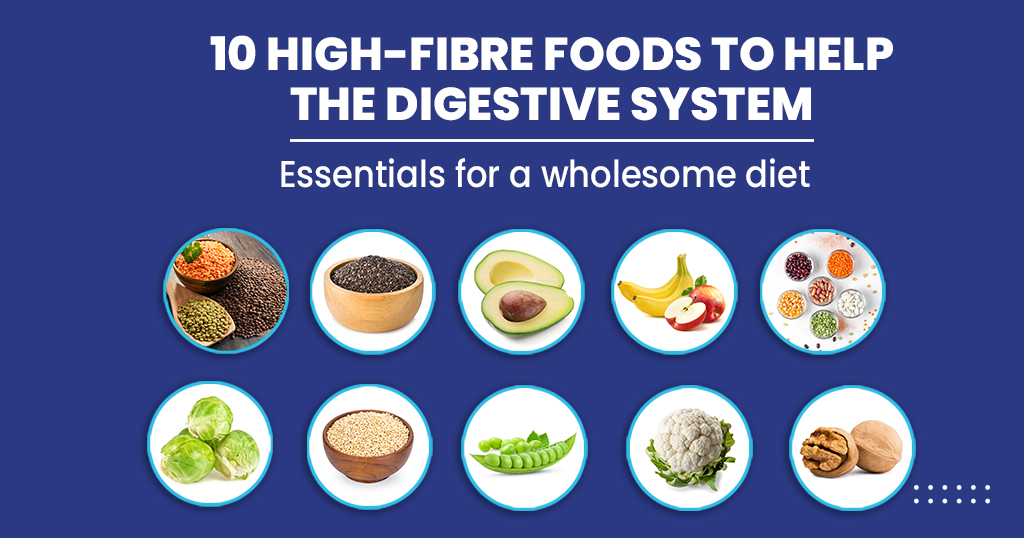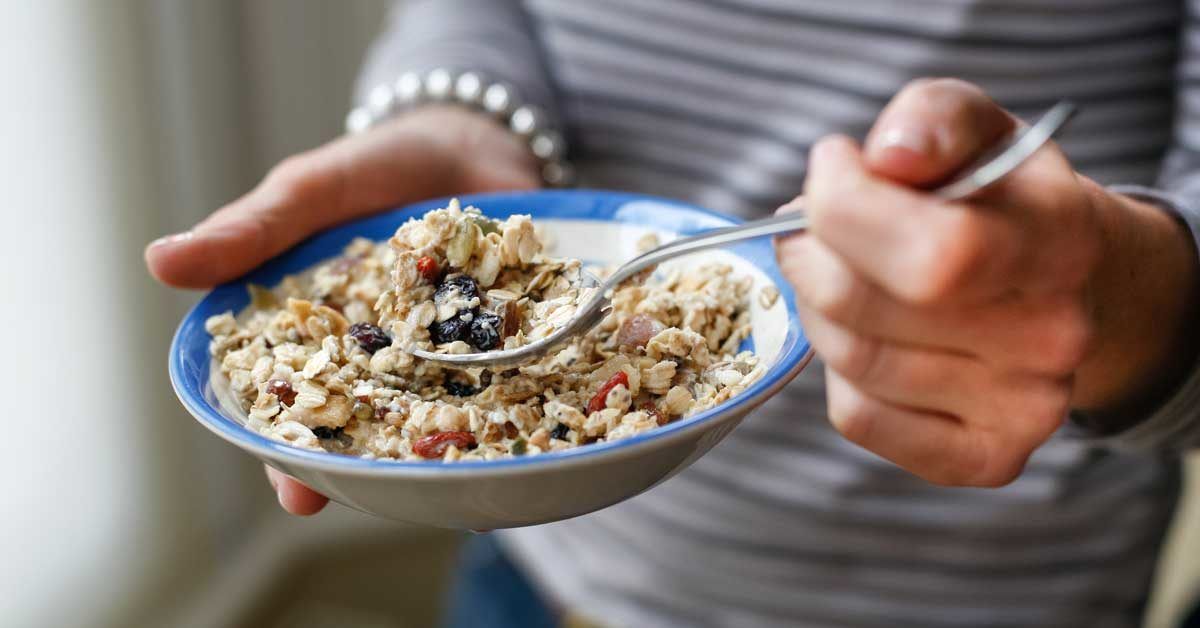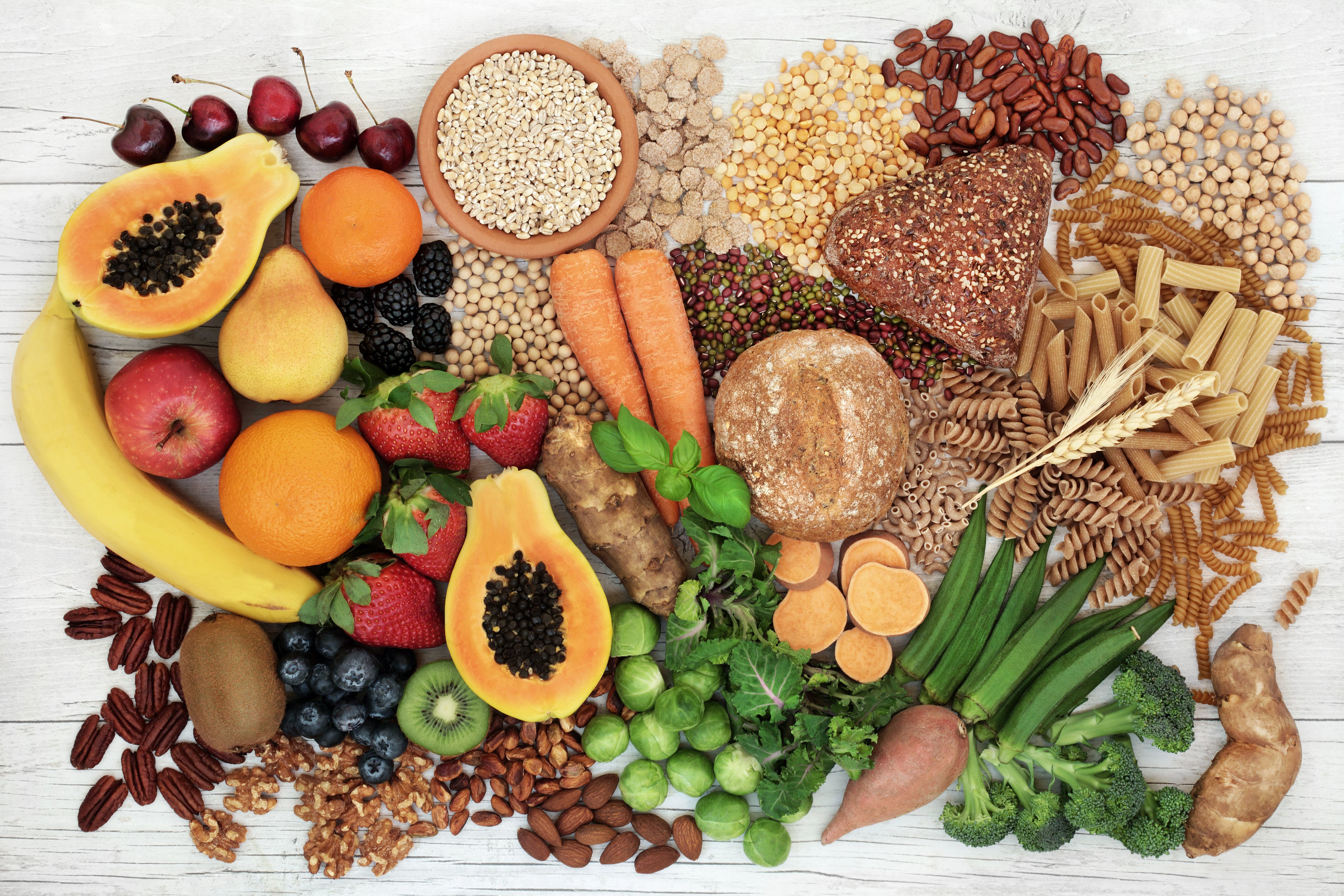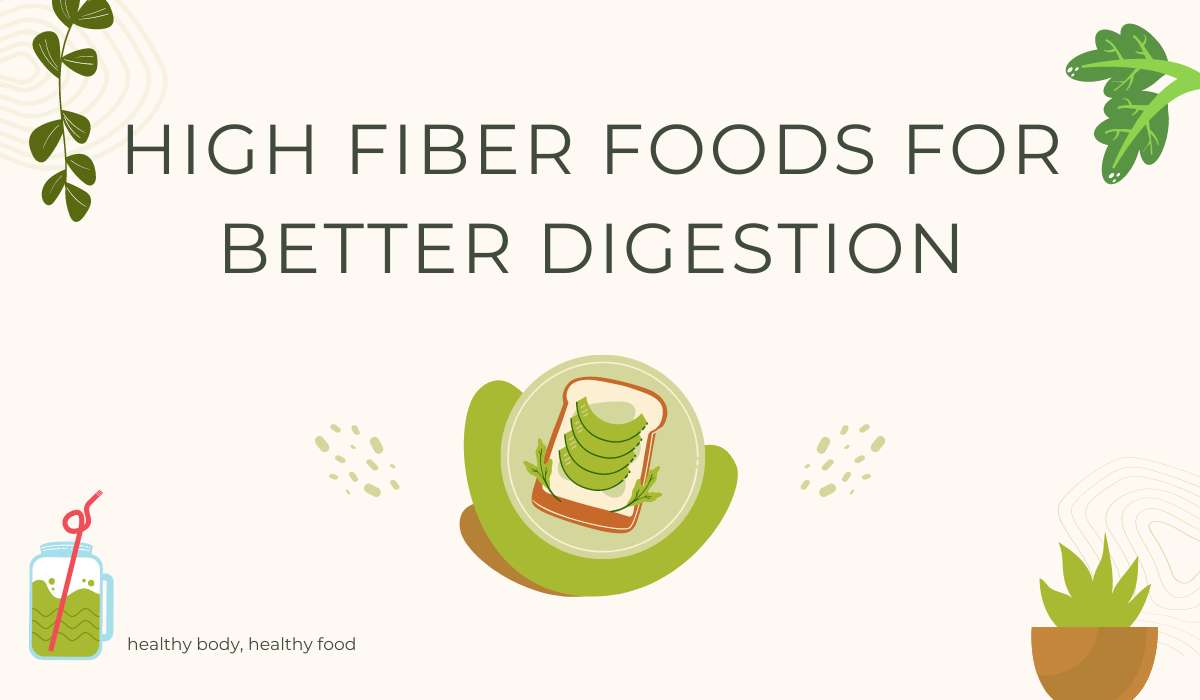Delicious High Fiber Foods for Better Digestion, By adding more fiber-rich foods to your meals, you can improve digestion and prevent common digestive issues such as constipation and bloating. In this article, we will explore the benefits of high fiber foods for digestion and introduce you to some delicious options to include in your daily meals.
To understand why fiber is important for digestion, it’s crucial to know that there are two types of fiber: soluble and insoluble. Soluble fiber dissolves in water and forms a gel-like substance in your digestive tract, which helps soften stools and ease their passage. Insoluble fiber, on the other hand, adds bulk to your stool and promotes regular bowel movements.
By incorporating high fiber foods into your diet, you can experience several benefits for your digestion. These include improved bowel regularity, a reduced risk of developing hemorrhoids, and lower cholesterol levels. Additionally, high fiber foods can help control blood sugar levels, making them particularly beneficial for individuals with diabetes.
Next, let’s dive into some of the best high fiber foods that you can incorporate into your diet to enhance digestion.
Benefits of High Fiber Foods for Digestion

Boosting Your Bowel Regularity: Adding high fiber foods to your diet can help regulate your bowel movements. The fiber helps add bulk to your stool, making it easier to pass through your digestive system.
Preventing Digestive Issues: Incorporating high fiber foods into your meals can prevent common digestive issues like constipation and bloating. The fiber acts as a natural laxative, promoting healthy and regular bowel movements.
Reducing the Risk of Hemorrhoids: Hemorrhoids are swollen blood vessels in the rectum or anus that can be caused by straining during bowel movements. By consuming high fiber foods, you can avoid constipation and reduce the risk of developing hemorrhoids.
Lowering Cholesterol Levels: Soluble fibers found in high fiber foods can help lower cholesterol levels. They bind to cholesterol in your digestive system, preventing it from being absorbed into the bloodstream.
Controlling Blood Sugar Levels: For individuals with diabetes, consuming high fiber foods can help control blood sugar levels. Fiber slows down the absorption of sugar, preventing spikes in blood glucose levels.
Promoting Overall Digestive Health: Including high fiber foods in your diet improves overall digestive health by keeping everything running smoothly. It nourishes the beneficial bacteria in your gut, supporting a healthy gut microbiome.
By incorporating these delicious high fiber foods into your daily meals, you can experience improved digestion and enjoy all the benefits that come with it.
Fiber plays a crucial role in your digestion. It helps move food through your digestive system smoothly and efficiently. Without enough fiber, you may experience constipation, bloating, and other digestive issues.
One of the main benefits of fiber is that it adds bulk to your stool, making it easier to pass. This helps prevent constipation and keeps your bowel movements regular. Fiber also absorbs water, which softens your stool and prevents it from becoming too hard.
In addition to promoting regularity, fiber can help prevent hemorrhoids. When you strain during bowel movements, you put more pressure on the blood vessels in your rectum and anus, which can lead to hemorrhoids. By including high fiber foods in your diet, you can avoid constipation and reduce the risk of developing hemorrhoids.
Furthermore, fiber plays a role in lowering cholesterol levels. Soluble fibers found in high fiber foods bind to cholesterol in your digestive system, preventing it from being absorbed into the bloodstream. This can help reduce LDL cholesterol (the “bad” cholesterol) levels and improve heart health.
Overall, incorporating high fiber foods into your diet is essential for maintaining a healthy digestive system. It promotes regularity, prevents digestive issues like constipation and hemorrhoids, and even helps lower cholesterol levels. So make sure to include plenty of fiber-rich foods in your meals for better digestion.
Whole Grains

Whole grains are an excellent source of fiber for your digestion. They are packed with nutrients and provide a satisfying feeling of fullness. Including whole grains in your diet can help promote regular bowel movements and prevent constipation.
Start your day with a bowl of oatmeal, which is high in soluble fiber that helps lower cholesterol levels. Swap white bread for whole grain bread to increase your fiber intake. Choose brown rice instead of white rice for a wholesome and fiber-rich option.
Barley, quinoa, and buckwheat are also great choices when it comes to whole grains. These grains are not only rich in fiber but also provide essential vitamins and minerals.
Eating whole grains can also help regulate blood sugar levels, keeping you energized throughout the day. They are a nutritious addition to any meal or snack. Add whole grain pasta to your favorite marinara sauce or sprinkle some wheat germ onto your yogurt for an extra fiber boost.
With their numerous health benefits, whole grains are truly a powerhouse for digestion. Incorporate more whole grains into your meals to support a healthy digestive system and enjoy the delicious flavors they bring to your plate.
Fruits and Vegetables

Fruits and Vegetables
When it comes to supporting your digestion, fruits and vegetables are a vital part of your diet. They are loaded with essential fiber, vitamins, and minerals that promote a healthy digestive system. Including a variety of colorful fruits and vegetables in your meals provides you with the necessary nutrients to keep things running smoothly.
Apples, bananas, berries, oranges, and pears are not only delicious but also high in fiber. They help add bulk to your stool and prevent constipation. Leafy greens such as spinach, kale, and broccoli are excellent choices as they are rich in fiber and contribute to a healthy gut.
Make sure to opt for whole fruits instead of juices to maximize your fiber intake. Enjoy a refreshing salad with mixed greens and vibrant vegetables like tomatoes, carrots, and cucumbers. Snack on crunchy raw veggies like bell peppers or celery sticks throughout the day for added fiber.
<
p>Fruits and vegetables are also packed with antioxidants that protect your digestive system from damage caused by free radicals. So make sure to include a rainbow of fruits and vegetables on your plate for optimal digestive health.
Legumes and Beans
Legumes and beans are another excellent choice for improving your digestion. These plant-based powerhouses are rich in fiber, protein, and essential nutrients. Including legumes such as lentils, chickpeas, black beans, and kidney beans in your diet can provide numerous benefits for your digestive system.
Legumes are packed with soluble fiber, which helps soften the stool and promotes regular bowel movements. They also contain resistant starch, a type of fiber that feeds the beneficial bacteria in your gut, promoting a healthy balance of gut flora.
Adding legumes to your meals is easy and versatile. You can enjoy them in soups, stews, salads, or even as a meat substitute in dishes like bean burgers or lentil tacos. You can also create delicious dips like hummus using chickpeas.
To incorporate more legumes into your diet, start by adding a tablespoon of beans or lentils to your favorite recipes. Gradually increase the amount over time as your body adjusts to the increased fiber intake.
By including legumes and beans in your diet, you can support a healthy digestive system and enjoy their many nutritional benefits.
Nuts and Seeds

Nuts and seeds are another great addition to your diet for better digestion. These small but mighty powerhouses are not only high in fiber but also packed with essential nutrients, healthy fats, and antioxidants. By including nuts and seeds in your meals, you can promote a healthy digestive system.
Nuts like almonds, walnuts, and pistachios provide a good source of insoluble fiber, which adds bulk to your stool and helps promote regular bowel movements. They also contain natural oils that lubricate the intestines, making it easier for waste to pass through.
Seeds such as chia seeds, flaxseeds, and pumpkin seeds are rich in both soluble and insoluble fiber. Soluble fiber absorbs water and forms a gel-like substance in the digestive tract, helping to soften the stool. Insoluble fiber adds bulk to the stool, promoting regularity.
To incorporate more nuts and seeds into your diet, you can sprinkle them on top of salads or yogurt, blend them into smoothies, or grab a handful as a snack. They also make a great topping for oatmeal or baked goods.
By adding nuts and seeds to your daily meals or snacks, you can enjoy their digestive benefits while enhancing the nutritional value of your diet.
Conclusion
Incorporating high fiber foods into your diet is a simple and effective way to improve digestion. By adding more whole grains, fruits and vegetables, legumes and beans, and nuts and seeds to your meals, you can provide your body with the essential nutrients it needs while promoting a healthy digestive system.
Fiber plays a crucial role in digestion as it adds bulk to the stool, promotes regular bowel movements, and helps prevent constipation. It also aids in maintaining a healthy gut microbiome, which is important for overall digestive health.
Remember to gradually increase your fiber intake and drink plenty of water to ensure proper digestion. Too much fiber too quickly can cause bloating or discomfort. Listen to your body and find the right balance that works for you.
So why wait? Start incorporating these delicious high fiber foods into your diet today and experience the benefits of improved digestion. Your body will thank you!
Incorporating High Fiber Foods for Better Digestion

Incorporating high fiber foods into your diet
To start incorporating high fiber foods into your diet, focus on adding more whole grains. Swap refined white bread for whole wheat bread and try brown rice instead of white rice. These changes can increase your fiber intake significantly.
Another great way to boost your fiber intake is by including a variety of fruits and vegetables in your meals. Berries, apples, pears, broccoli, carrots, and leafy greens are all excellent sources of fiber. Be sure to include them in your daily diet for better digestion.
Legumes and beans are also high in fiber and can be easily incorporated into meals. Black beans, lentils, chickpeas, and kidney beans can be added to soups, salads, or used as a base for vegetarian dishes.
Don’t forget about nuts and seeds! Snack on almonds, walnuts, chia seeds, or flaxseeds to increase your fiber intake throughout the day.
Remember to gradually increase your fiber intake and drink plenty of water to ensure proper digestion. Too much fiber too quickly can cause bloating or discomfort. Listen to your body and find the right balance that works for you.
Incorporating these delicious high fiber foods into your diet will not only improve digestion but also provide essential nutrients for a healthy body. Start making these changes today and feel the difference in your digestive health.
For More Blogs visit Aerns

